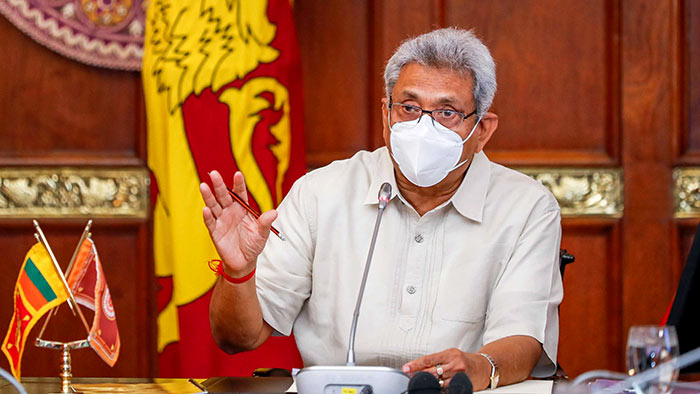President establishes Task Force for Green Agriculture

President Gotabaya Rajapaksa has established a Presidential Task Force for Green Agriculture.
President Rajapaksa appointed this Task Force Friday last (15) through an Extraordinary Gazette notification, the President’s Media Division said.
The Task Force chaired by Vijith Welikala has 14 members. Vernon Perera, Additional Secretary to the President, has been appointed as Secretary of the said Task Force.
Through the gazette, the President directed the Presidential Task Force for Green Agriculture to liaise with the Economic Revival and Poverty Alleviation Task Force and the Presidential Task Force for the creation of a Green Sri Lanka with sustainable Solutions for climate Change.
It has been emphatically stated in the Policy Statement: “Vistas of Prosperity and Splendour” that action would be initiated to build a developed agricultural economy and to create an opportunity for the local and international consumer to obtain toxin-free agricultural products within the next decade as well as to introduce eco-friendly crops.
It is the foremost objective of the Government to create an eco-friendly healthy green agriculture through the means of livelihood thereby minimizing the chemical waste materials being added to the soil and water.
Attention has been drawn on the possibility of benefits being accrued locally, as well as, internationally, through marching towards a sustainable green agriculture by undertaking eco-friendly organic farming by the adaption of the state-of-the art technology.Taking into consideration the need for unhygienic agro chemicals to be minimized through research and new inventions and for eco-friendly organic fertilizer production that suit the local environmental conditions to be incentivized,
The members of the Presidential Task Force are responsible for formulating a systematic programme for sustainable maintenance of green agriculture, identifying the organic fertilizer required for various crops and improving the quality of such fertilizer production, producing pesticides and weedicides locally, identifying methodologies and monitoring mechanism for importing the limited scale possible shortages with high standards on the approval of the Sri Lanka Standards Institute in meeting the requirements through local production, enhancing the communication in transmitting to the public the health-related socio-economic benefits to be accrued from organic food production and consumption and enlisting the active support of the Public Service in this process and broadening the organic agriculture extension services at field level.
(Source: Daily News)
Latest Headlines in Sri Lanka
- Chaminda Kularatne files corruption complaint against speaker February 2, 2026
- Chinthaka Hewapathirana elected new Chairman of Weligama Pradeshiya Sabha February 2, 2026
- Sri Lanka to protect and develop 3.1 Billion-ton quartz reserve in Monaragala February 2, 2026
- Police Inspector, Constable arrested over missing gun at Matugama Police Station February 2, 2026
- Sri Lanka allows women to work at night as sanitary and food service workers February 1, 2026



Last government set up a commission to tackle all problems and this one set up a task force for every thing. Nothing works.